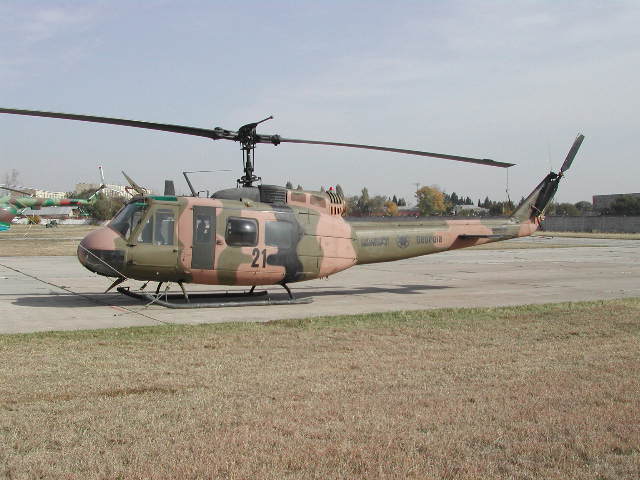
U.S. Policy on Defense Assistance to Georgia: Neither Yes or No, Perhaps Sometimes
Publication: Eurasia Daily Monitor Volume: 7 Issue: 171
By:

While US assistance for Georgia’s defense remains frozen, Moscow is ignoring objections to its own arms deliveries to Russia’s friends. Most recently in Washington, Russian Defense Minister Anatoly Serdyukov brushed aside US Defense Secretary Robert Gates’ objections to Russia’s delivery of Bastion coastal artillery systems, with 72 missiles of the P-800 Yakhont (Onyx) type, to Syria. This is an anti-ship missile, flying at just a few meters above the sea level, at twice the speed of sound, with a range of up to 300 kilometers, reputedly impossible to intercept, and thus would seriously affect the balance of power in the area. It is the latest in a recent series of Russian arms deliveries to Syria. Top Israeli officials telephoned their Russian counterparts, rushed to Moscow, and finally asked Gates to intercede with Serdyukov, trying unsuccessfully to stop this sale. According to Pentagon chief spokesman Geoff Morrell, briefing Russian journalists during Serdyukov’s visit, Gates raised this issue, but to no avail (Defense Update, September 20; RIA Novosti, Jerusalem Post, September 19, 20; Interfax, September 17, 21).
According to the Moscow Center for Analysis of the World Arms Trade, these missile systems are also intended to protect Russia’s naval station at Tartus in Syria. The Russians are currently repairing and expanding that Soviet-era naval station to accommodate large ships, including missile cruisers and helicopter carriers [presumably, Mistral] from Russia’s Black Sea Fleet in the years ahead (RIA Novosti, September 20). Russian work at Tartus has picked up in recent months, following the prolongation of Russia’s naval basing rights in Ukraine and Russian fleet expansion plans. Moscow plans to re-establish the foothold in Syria as part of its Black Sea Fleet’s mission.
This missile delivery represents the latest stage in an instructive sequence of events that started in Georgia and continues to affect that country, along with Israel and the United States. Shortly before the 2008 war, Russia successfully pressured Israel to stop delivering unmanned aerial vehicles (and any military equipment) to Georgia. Despite its special relationship with Georgia at that time, Israel caved in when Moscow threatened to deliver S-300 air defense systems to Iran, and heavy rockets to Hezbollah. Shortly thereafter, Russia proceeded to invade Georgia. The Israeli angle of these events was well covered by Israeli media at the time, and became a subject of retrospection with the Georgian ambassador in that country, on the war’s second anniversary (Haaretz, August 3).
Thus, Moscow compelled one close US ally, Israel, to desist from aiding (with non-lethal defensive means) another close US ally, Georgia. The United States seemed unable to protect one ally from Russian blackmail and the other ally from Russian invasion. In combination, those developments could be seen as harbingers of unraveling in the US-led alliance system. NATO seemed uninterested and Washington took no public notice of the implications, at the time or since then. Predictably, Russia has not responded to such unilateral restraint.
Secretary Gates has nevertheless reaffirmed in an interview for Russian media that the United States is merely “providing Georgia with the means by which they can help us in Afghanistan,” considering that “they themselves [Georgians] are willing to make an important contribution to our efforts in Afghanistan.” While upholding, in principle, “every sovereign country’s right to provide for its own defense,” Gates made clear to the Russians that US assistance to Georgia is confined to the Afghanistan operation (Interfax, September 15).
The US “reset” policy sine 2009 did not create such dilemmas, although it perpetuates them and inhibits solutions. This and other dilemmas originated during the end-phase of the Bush administration, when the Iraq and Afghanistan wars–alongside the protracted deadlock with Iran–led the United States to chase after Russian help with those predicaments. This shortage of resources led to an undeclared US strategic disengagement from Europe’s eastern neighborhood. This also opened the window of opportunity for deeper Russian entrenchment and re-expansion in the Black Sea-South Caucasus region, ranging from Ukraine to Armenia and potentially beyond. In that region, Georgia stands exposed.
Georgia handles the issue of defense assistance carefully, avoiding any move that would put Washington on the spot. However, according to President Mikheil Saakashvili, “leaving Georgia defenseless does not help the situation. A defenseless Georgia is a big temptation for Russia….As part of ongoing security cooperation, we hope that the United States will help us with defensive weapons capabilities” (Newsweek, September 12).
Meanwhile, the US non-approval policy affects not only items for Georgia’s defense, but also some that are needed by Georgian troops in Afghanistan. These include, inter alia, M-4 infantry rifles and Humvee vehicles for in-country training. Georgia’s preference for the M-4 over the Kalashnikov is not merely “ideological” as has been suggested. Like the other NATO aspirants, Georgia wants to move toward a Western-model national force and feels justified to use the US M-4s, not Kalashnikovs, when operating alongside US troops, as in Afghanistan. While US training and some US equipment is provided for Georgian troops in Afghanistan, the non-approval policy apparently blocks delivery of even non-lethal equipment for Georgia’s defense. Most recently, a leading American manufacturer intended to conduct (on its own funding) a needs-assessment in Georgia for a radar system, had to desist as a result of the US non-approval policy.
US officials do not rule out equipping Georgia for national defense in an unspecified future. They claim, however, that Georgia needs “brains before muscle power [brawn]” in order to handle anti-tank or air-defense equipment. The oft-repeated phrase “brains before brawn” has become a standard justification for Washington’s de facto embargo on equipment for national defense. That phrase implies that Georgia needs a military doctrine and a qualified officer corps in order to use such capabilities effectively.
This argument has inherent merit when it comes to sophisticated systems. However, it needs to be accompanied by steps to remedy the problems to which it points. Georgia can hardly develop a full-fledged military doctrine without a clear picture of what may become available to its forces, in terms of equipment and troop training. Furthermore, the United States could easily (and at low cost) enlarge the number of slots for Georgians in US military service academies and advanced training programs. The current number of such slots is negligible, inconsistent with any notion of strategic partnership. Training assistance to Georgia for homeland defense (another low-cost type of assistance) has become a priority, apart from training for counterinsurgency in distant expeditionary operations. Unless accompanied by such measures, the catchphrase “brains before brawn” will continue to sound like an excuse for inaction, instead of a starting premise for supporting the national defense of a strategic-asset country.




